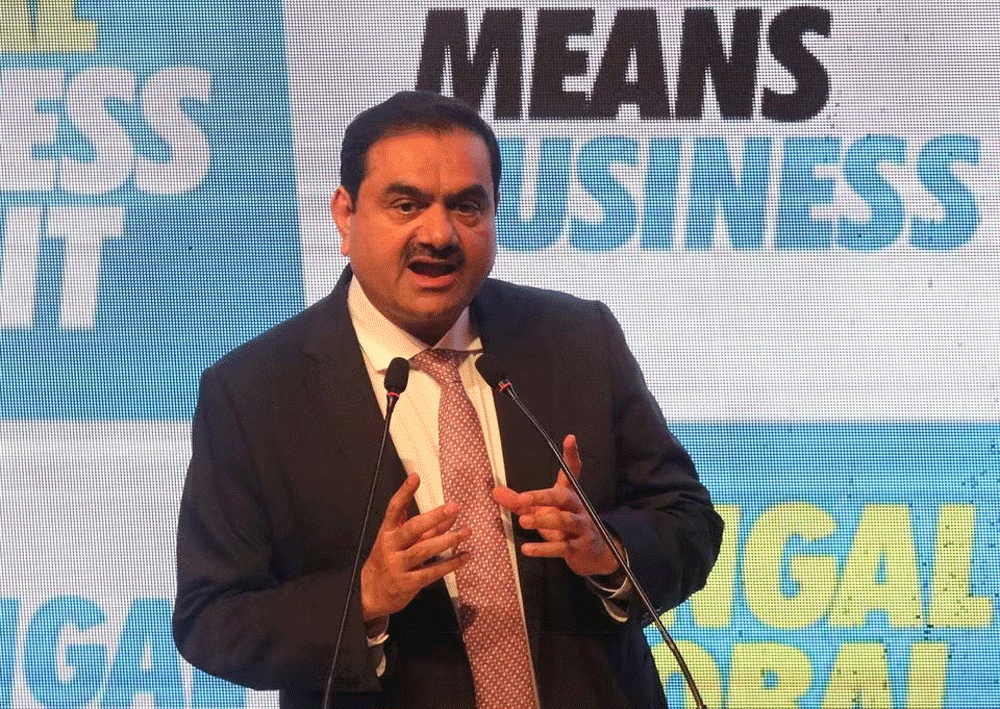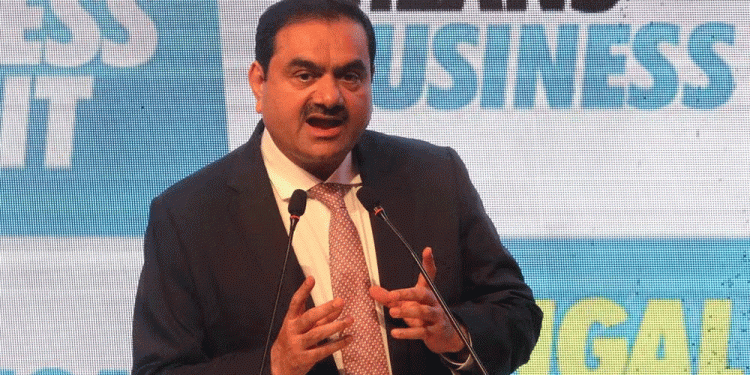NEW DELHI: Indian investigators are seeking to restart a probe into Adani Group for alleged overvaluation of coal imports and have asked the Supreme Court to allow them to collect evidence from Singapore, a step they say the company thwarted for years, legal documents show.
The Directorate of Revenue Intelligence since 2016 has been trying to procure transaction documents related to Adani’s dealings from Singapore authorities.
The agency suspects many of the group’s coal shipments imported from Indonesian suppliers were first billed at higher prices on paper to its Singapore unit, Adani Global Pte, and then to its Indian arms.
Adani Enterprises and its subsidiaries, led by billionaire Gautam Adani, have successfully mounted repeated legal challenges in India and Singapore to block the documents’ release, court papers show.
Adani has denied wrongdoing, saying that Indian authorities assessed its coal shipments before releasing them from ports.
In an Oct. 9 legal filing, which Reuters is reporting for the first time, the revenue intelligence agency asked India’s Supreme Court to quash a previous lower court order that allowed Adani to block authorities from collecting evidence from Singapore.
The Indian officials dispute Adani’s arguments that the agency did not follow “due process”, saying in the filing it had approval to seek information from the Southeast Asian city-state under a mutual legal assistance treaty.
“Permission for following this route was obtained from the Ministry of Finance as well as (the) Ministry of Home Affairs,” the 25-page filing states, adding that the investigation “is completely in compliance”.
In a statement to Reuters, Adani Group said it had “fully co-operated” with the authorities by providing details and documents sought more than four years ago and that “no deficiency or objection” was communicated by investigators thereafter.
The Indian revenue agency did not respond to Reuters’ queries.
The effort to revive the coal probe comes amid wider regulatory scrutiny of Adani since Hindenburg Research in January accused the tycoon and his conglomerate of improper use of tax havens and stock manipulation.
Despite Adani’s denials, the short seller’s report triggered a $150 billion plunge in the group’s stocks.
India’s Supreme Court is also overseeing the market regulator’s probe of Hindenburg’s allegations.
India’s Adani to slow down on dealmaking to focus on existing projects
Amid the fallout and ahead of India’s 2024 election, political opponents have increased pressure on Prime Minister Narendra Modi’s administration, accusing it of favouritism toward Adani in government decisions.
Modi and Adani, who both hail from Gujarat, have denied impropriety. The revenue agency began looking into Adani’s imports as part of a broader investigation into 40 companies that started in 2014.
Investigators alleged the companies importing Indonesian coal were overinvoicing deliveries by showing bills of shipments routed through intermediaries in Singapore and elsewhere.
Indian authorities reviewed 1,300 shipments involving Adani and alleged in court filings that it “grossly overstated” or “artificially inflated the import value of coal” as compared with the export value from Indonesia, “with the objective of siphoning off” funds to tax havens and charging higher power prices in India.
The sums involved may run into billions of rupees, according to the agency, which has not identified any Indonesian supplier.
Battle in Singapore
The evidence India is seeking from Singapore authorities, which includes transaction documents from 20 of Adani’s banks there, could help establish a financial trail in the case, a person with direct knowledge of the matter told Reuters.
If India’s Supreme Court allows the agency’s latest request, it would then need to seek an order from Singapore’s Court of Appeal to release the material.
The Singapore court declined requests from Reuters last month to inspect related case documents, saying in written responses that the files were sealed.
But a Reuters review of hundreds of pages of Indian court filings and orders reveal a tussle between India and Adani that stretched from Mumbai to New Delhi to Singapore in recent years.
In 2019, on Adani’s challenge, the High Court of Mumbai cited procedural lapses in quashing the request by Indian investigators to collect evidence against Adani.
Days later, the agency appealed to the Supreme Court, which put the Mumbai verdict on hold “until further orders”, which the agency contended in a subsequent Supreme Court filing meant “the investigation could be continued”.
But the Singapore court in late 2020, after Adani’s request, said the documents should not be released for now because India’s top court had not reached a final decision, according to two people with direct knowledge of the matter and a Reuters review of legal orders.
In a statement to Reuters, the office of Singapore Attorney-General Lucien Wong said the Singapore court had not opined on the merits of Adani’s appeals and the case was still pending.
The stance adopted by Adani’s companies in Singapore “created impediments” and the investigation “remains stalled”, the revenue agency told India’s Supreme Court in 2021 filings.
The case was not heard for around two years, until the agency told the Supreme Court in July that it wanted to update judges about certain events in Singapore, without elaborating.
It then lodged its October filing in a fresh bid to obtain evidence.
The next hearing is scheduled for Feb. 6.

Source: Brecorder





























